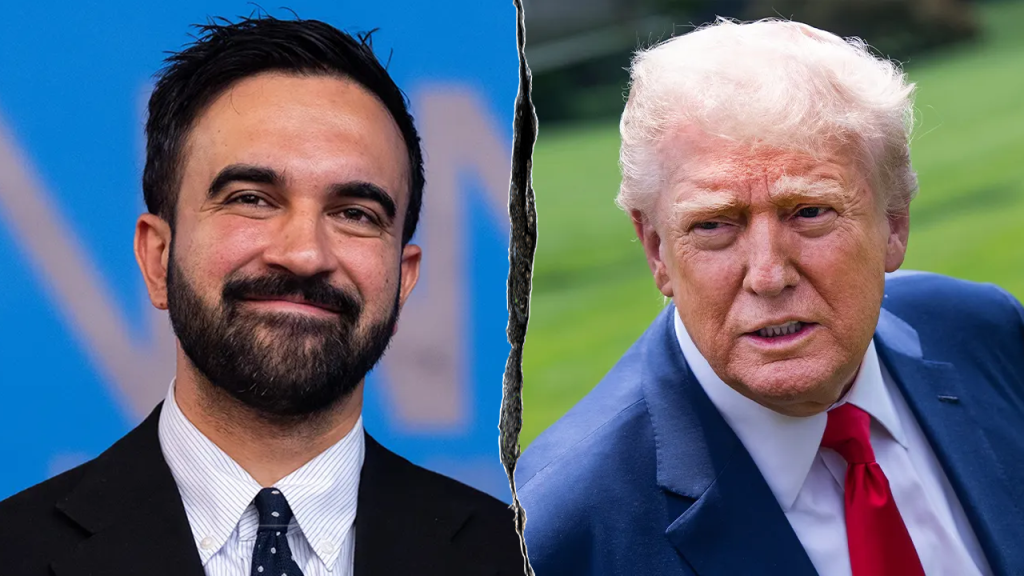Trump Expresses Concern Over New York City’s Mayoral Race, Predicting a “Communist” Victory
In a candid White House press discussion, President Donald Trump shared his thoughts on the upcoming New York City mayoral election, expressing deep concern about the direction the city might take under progressive leadership. Trump, who has long considered himself a New Yorker despite relocating from the city, suggested that based on current polls, New York appears poised to elect what he characterized as a “communist” mayor. While not explicitly endorsing any candidate, the president’s comments revealed his preference for a more moderate Democrat over state assemblyman Zohran Mamdani, who has secured endorsements from prominent progressive figures like Representative Alexandria Ocasio-Cortez and Senator Bernie Sanders. Trump’s remarks highlight the high-stakes nature of this election for America’s largest city and reflect broader national tensions over the leftward shift in urban politics.
When questioned about whether Republican candidate Curtis Sliwa should drop out of the race, Trump acknowledged the political reality shown in polling data but didn’t directly call for Sliwa’s withdrawal. Instead, he speculated that even if Sliwa exited, former Governor Andrew Cuomo might still struggle to close the gap with Mamdani, noting, “If he [Sliwa] dropped out, he’s not going to win. And not looking too good for Cuomo either.” This assessment acknowledges the significant lead that polling indicates Mamdani currently holds with just two weeks remaining before Election Day. Despite his evident preference for a different outcome, Trump maintained that he would fulfill his presidential obligations by meeting with Mamdani should the Democratic socialist candidate win, stating simply, “I’ll speak to him. I think I have an obligation to speak to him.”
The president’s comments reflect a nostalgic view of New York City’s past contrasted with what he perceives as its decline under progressive leadership. “I love New York. I’ve always loved New York. I just can’t believe a thing like this is happening,” Trump lamented, referencing his decision to leave the city during Mayor Bill de Blasio’s administration, which he described as “a disaster.” Trump’s characterization of New York as once being a “hot city” that has since fallen from grace reveals his deep personal connection to the metropolis where he built much of his business empire and public persona. His concern about a potential Mamdani administration continues a narrative he’s advanced throughout his presidency about the dangers of progressive politics in America’s urban centers.
Trump’s skepticism about democratic socialist policies was evident in his historical reference: “With the communist in charge… look, you just go back a thousand years. I mean, it’s been done many times, a thousand years. It’s never worked once. So it’s not going to work now.” This comment underscores the president’s fundamental ideological opposition to Mamdani’s platform, which includes progressive proposals such as legalizing prostitution and increasing taxes on wealthy New Yorkers. While critics might challenge Trump’s characterization of Mamdani as a “communist,” the president’s rhetoric reflects genuine concern about how socialist-leaning policies might impact New York City’s economic and social fabric.
The president’s remarks also highlighted his administration’s approach to federal-state relations, particularly with Democratic-led cities. “He’s got to go through the White House, everything goes through the White House. At least this White House, it does,” Trump noted, suggesting that his administration would maintain oversight of federal matters affecting New York City regardless of who becomes mayor. This statement reflects the ongoing tension between Trump’s White House and progressive urban governments nationwide, with federal funding, immigration enforcement, and public safety initiatives often becoming points of contention. Trump’s assertion of federal authority indicates that even with a Mamdani victory, his administration would remain engaged in shaping New York City’s future.
With the November 4th election rapidly approaching, Trump’s comments add another dimension to an already contentious mayoral race that many see as a referendum on progressive politics in America’s urban centers. The silence from the Cuomo, Mamdani, and Sliwa campaigns in response to Trump’s remarks suggests they may be carefully calculating how the president’s involvement might influence voters in heavily Democratic New York City. For many New Yorkers, this election represents more than a simple changing of the guard at City Hall—it symbolizes a choice between competing visions for the city’s recovery from the pandemic and its long-term economic and social trajectory. As Election Day draws closer, voters will decide whether to embrace Mamdani’s progressive agenda or opt for more moderate leadership in navigating the challenges facing America’s largest metropolis.


